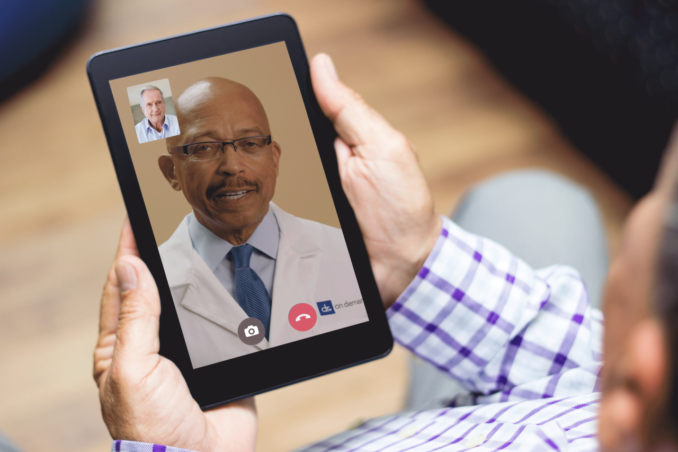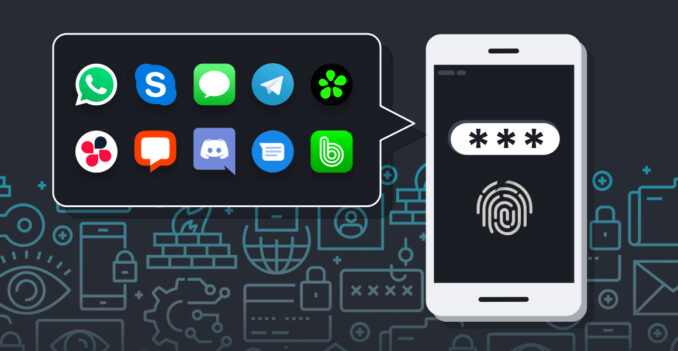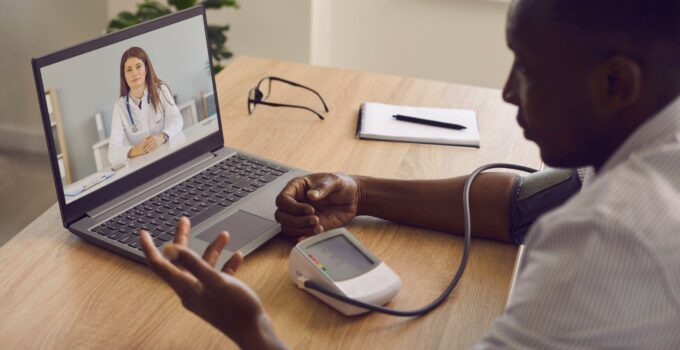The rapid growth of digital health technologies has given rise to an increasing number of providers offering telehealth and virtual health services. While these terms are often used interchangeably, there are distinct differences between the two. Telehealth typically refers to remote healthcare services delivered through video conferencing, phone calls, or secure messaging, while virtual health encompasses a broader range of digital health technologies, including remote patient monitoring, AI-driven diagnostic tools, and wearable devices.
In this round-up article, we will explore the top providers of telehealth and virtual health services, highlighting their unique offerings and the key differences between them.
Telehealth Providers

Source: morningconsult.com
Teladoc
Teladoc is one of the largest telehealth providers globally, offering on-demand access to healthcare professionals via video conferencing, phone calls, and secure messaging. The platform connects patients with a network of licensed physicians, specialists, and mental health professionals, providing care for a wide range of non-emergency medical conditions, including colds, flu, allergies, and mental health issues.
Key features:
24/7 access to healthcare professionals
Support for over 450 medical subspecialties
Integration with employer health plans and insurance providers
Amwell
Amwell is a leading telehealth platform that provides remote consultations with healthcare professionals for various medical conditions, including urgent care, behavioral health, and chronic disease management. The platform also offers telehealth solutions for health systems, employers, and insurers, enabling them to deliver remote care services to their patients and members.
Key features:
Direct-to-consumer telehealth services
Customizable telehealth solutions for healthcare organizations
Integration with popular EHR systems
Doctor On Demand

Source: medcitynews.com
Doctor On Demand is a telehealth provider that connects patients with board-certified physicians, psychiatrists, and psychologists through video consultations. The platform offers care for a wide range of medical conditions, from acute illnesses to ongoing mental health concerns.
Key features:
Access to healthcare professionals within minutes
Support for both physical and mental health conditions
Integration with insurance providers and employer health plans
Virtual Health Providers
Cerner
Cerner is a global health technology company that offers a comprehensive suite of virtual health solutions, including remote patient monitoring, telehealth, and AI-driven diagnostic tools. The company’s virtual health platform, HealtheLife, enables healthcare providers to deliver remote care services, track patient health data, and promote patient engagement.
Key features:
Remote patient monitoring for chronic conditions
Telehealth capabilities through Cerner’s Video Visit solution
Integration with Cerner’s EHR system
Philips
Philips is a multinational conglomerate that offers a range of virtual health solutions, focusing primarily on remote patient monitoring and connected care technologies. Their virtual health platform, Philips eCareCoordinator, allows healthcare providers to monitor patients with chronic conditions, such as diabetes and heart failure, and receive real-time alerts for potential health issues.
Key features:
Comprehensive remote patient monitoring capabilities
Integration with a wide range of connected health devices
Customizable care plans and patient dashboards
Medtronic
Medtronic, a global medical technology company, provides virtual health solutions with a strong focus on remote patient monitoring and connected care. Their virtual health platform, CareLink, enables healthcare providers to monitor patients with chronic conditions, such as diabetes and cardiovascular disease, and make data-driven care decisions.
Key features:
Remote patient monitoring for various chronic conditions
Integration with Medtronic’s medical devices and wearables
Advanced data analytics capabilities
Qliqsoft is an innovative virtual healthcare provider that specializes in secure communication and care coordination solutions for healthcare organizations. The company’s suite of products includes HIPAA-compliant messaging, healthcare chatbots, remote patient monitoring, and telehealth services. Qliqsoft’s platform is designed to improve collaboration among healthcare professionals, streamline administrative processes, and enhance the overall patient experience.
Key Features and Offerings

Source: tryshift.com
Secure Messaging
Qliqsoft’s secure messaging platform, QliqCHAT, offers HIPAA-compliant texting and communication tools that enable healthcare professionals to exchange sensitive patient information securely and efficiently. The platform supports encrypted messaging, file sharing, and image sharing, reducing the risk of data breaches and ensuring patient privacy. QliqCONNECT can be integrated with existing electronic health record (EHR) systems and other healthcare IT infrastructure to facilitate seamless communication and information sharing among care teams.
Healthcare Chatbots
Qliqsoft’s healthcare chatbot solution, Quincy, is an artificial intelligence (AI)-powered tool that can assist patients and healthcare providers in various ways, such as answering frequently asked questions, triaging patient concerns, and facilitating appointment scheduling. Quincy can be customized to meet the unique needs of individual healthcare organizations, improving efficiency, reducing administrative workload, and providing patients with quick, reliable information.
Remote Patient Monitoring
Qliqsoft’s remote patient monitoring solution, QPoint, enables healthcare providers to monitor patients with chronic conditions, such as diabetes and heart failure, using connected devices and wearables. QPoint collects and analyzes patient health data, allowing care teams to make data-driven decisions and facilitate early intervention for potential health issues. The platform also supports patient engagement and self-management tools, helping patients to take an active role in their healthcare.
While telehealth and virtual health providers share a common goal of improving access to healthcare and enhancing patient outcomes, the scope and focus of their services differ significantly. Telehealth providers, such as Teladoc, Amwell, and Doctor On Demand, primarily concentrate on delivering remote consultations and care through video conferencing, phone calls, and secure messaging. These platforms connect patients with healthcare professionals to address a wide range of medical conditions, making healthcare more accessible and convenient.
On the other hand, virtual health providers, including Cerner, Philips, and Medtronic, offer a more comprehensive range of digital health technologies, with a focus on remote patient monitoring, connected care, and data-driven decision-making. These providers help healthcare organizations monitor patients with chronic conditions, manage their health more effectively, and facilitate early intervention and personalized care.
As the digital health landscape continues to evolve, telehealth and virtual health providers will play an increasingly important role in shaping the future of healthcare delivery. By understanding the key differences between these providers and their unique offerings, patients, healthcare providers, and organizations can make informed decisions about the best digital health solutions for their needs. Ultimately, the adoption of telehealth and virtual health technologies has the potential to improve access to healthcare, enhance patient outcomes, and create a more sustainable and patient-centered healthcare system for the future.





